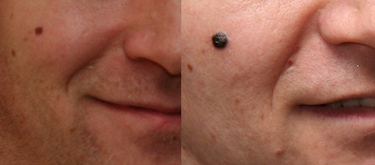Most common skin cancer misdiagnoses
 May is recognized as Skin Cancer Awareness Month. It is a crucial time to educate and inform the public about the prevalence, risk factors, and early detection of skin cancer. By increasing awareness, we aim to encourage individuals to take proactive steps to protect their skin and seek prompt medical attention when necessary. However, even with increased awareness, misdiagnoses can occur, leading to delayed or inappropriate treatment.
May is recognized as Skin Cancer Awareness Month. It is a crucial time to educate and inform the public about the prevalence, risk factors, and early detection of skin cancer. By increasing awareness, we aim to encourage individuals to take proactive steps to protect their skin and seek prompt medical attention when necessary. However, even with increased awareness, misdiagnoses can occur, leading to delayed or inappropriate treatment.
There are several types of skin cancer misdiagnosis:
- Basal Cell Carcinoma (BCC) Misdiagnosis: Basal cell carcinoma is the most common type of skin cancer. Unfortunately, it can be misdiagnosed as a benign condition such as a cyst or a harmless skin lesion. Due to the potential for misdiagnosis, patients might not receive the timely treatment they need.
- Squamous Cell Carcinoma (SCC) Misdiagnosis: Squamous cell carcinoma is another frequently misdiagnosed form of skin cancer. It can be mistaken for various skin conditions, such as eczema, psoriasis, or an infection. A misdiagnosis may lead to delayed treatment, allowing the cancer to progress and potentially spread.
- Melanoma Misdiagnosis: Melanoma is the most aggressive and dangerous type of skin cancer. A delayed or incorrect diagnosis can have severe consequences. Misdiagnosing melanoma as a benign mole or another harmless skin growth may prevent the patient from receiving the necessary life-saving treatment in its early stages.
Factors Contributing to Skin Cancer Misdiagnosis
Several factors can contribute to the misdiagnosis of skin cancer, including:
- Inadequate Dermatological Training: Some healthcare providers may lack extensive training or experience in dermatology, leading to errors in diagnosing skin conditions.
- Visual Similarities: Certain skin conditions, such as benign moles, cysts, or rashes, can resemble skin cancer lesions, making it challenging to differentiate them accurately without proper examination and diagnostic tests.
- Failure to Conduct Biopsies: A biopsy is the gold standard for diagnosing skin cancer. Failure to perform a biopsy or an inadequate sampling technique can result in an inaccurate diagnosis.
As Skin Cancer Awareness Month draws attention to this prevalent and potentially life-threatening disease, it is not only essential to get screened by a competent dermatologist but also to be aware of the risk of misdiagnosis. Remember, accurate and timely diagnosis is crucial for effective treatment and improved patient outcomes. Stay vigilant, take care of your skin, and spread awareness about skin cancer this May and beyond.
 New York Personal Injury Attorneys Blog
New York Personal Injury Attorneys Blog


